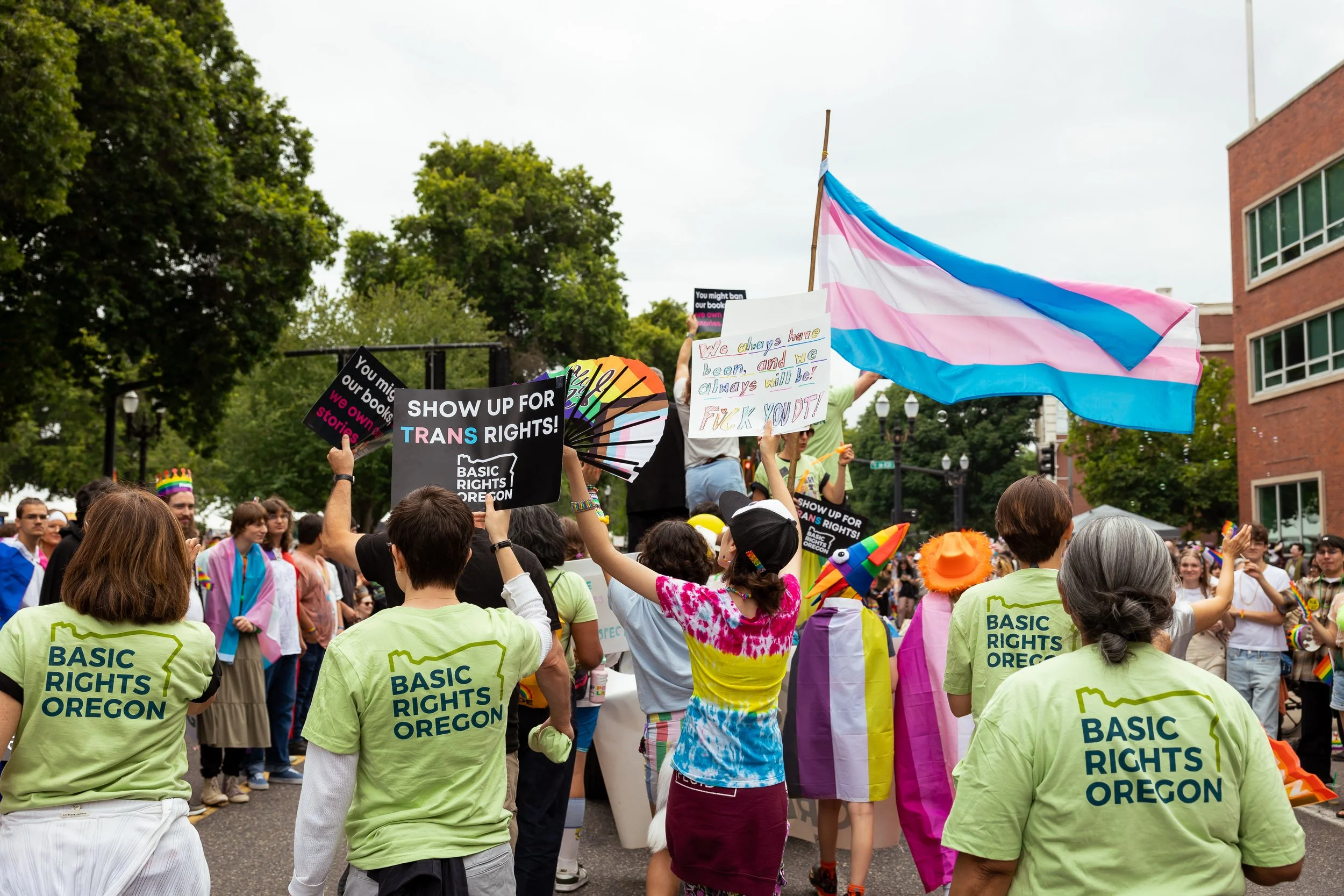
Transgender people are part of the fabric of our communities. They are our neighbors, family members, co-workers and partners.
Unfortunately, data shows that transgender people endure disproportionate amounts of harassment, unemployment, poverty and homelessness. To address and remedy this, Basic Rights has operated a dedicated Transgender Justice program since 2007. Through our legislative and policy work, as well as our educational outreach and community organizing, we’ve sought to achieve our mission of legal and lived equality for trans people.
Schools & Youth
Basic Rights Oregon has proudly worked with the Oregon Department of Education (ODE), individual schools and school districts, and higher education institutions to make Oregon schools more affirming for transgender and gender-expansive students.
Our work has helped inform and supported the ODE’s guidelines on transgender students, the LGBTQ2SIA+ Student Success Plan, and inclusive curriculum across the state.
Education Center
The Oregon Equality Act prohibits discrimination in employment on the basis of gender identity. But despite these protections, we know transgender people still face greater rates of unemployment, underemployment, and workplace harassment than their non-transgender peers.
To help promote a culture of inclusion in our state, we offer our Basic Rights Education Center trainings. These trainings help businesses, organizations and government offices become more trans-affirming. As of Spring 2019 we’ve given more than 75 trainings for over 3,000 attendees at organizations such as Amazon, OHSU and the Bonneville Power Administration.
Health Care
Basic Rights Oregon was a leader in passing a statewide ban on insurance discrimination against transgender Oregonians, which was first instituted in 2012 and then updated in 2016. Additionally, in 2015, we fought for and won coverage for gender-affirming care under the Oregon Health Plan.
Despite these wins, many LGBTQ2SIA+ Oregonians still face systemic barriers to access. In addition, many folks in our community struggle to identify providers and facilities equipped to provide the affirming, responsive care that meets their needs and honors their identities.
Helping the state successfully implement these life-saving policies and working to address the interpersonal bias and institutional discrimination trans people face in accessing healthcare is an ongoing challenge, so we sit on the Oregon Transgender Healthcare Coalition alongside several medical organizations, providers and advocates to identify and address barriers trans people face.
We continue to develop and advocate for health care policy improvements at the state level.
If you are looking for information about what gender-affirming care is covered by the Oregon Health Plan, click here.
Leadership Development
We’re committed to creating leadership that truly reflects our community. This means prioritizing groups that have been historically marginalized within the mainstream LGBTQ2SIA+ movement, namely the transgender and gender non-conforming community. We do this through our leadership development cohorts.
Formed out of the Transgender Working Group, the yearlong cohort affords participants real life opportunities to acquire skills in community organizing, program management and relationship building, as well as the chance to find mentors in their chosen fields.
Prisons and Jails
We are continuing our work with the Oregon Department of Corrections (DOC) and the Oregon Youth Authority (OYA) to ensure safe, respectful treatment for LGBTQ2SIA+, and particularly transgender, people in state custody. We’ve worked with partner organization including Beyond These Walls and the ACLU of Oregon to improve conditions for LGBTQ2SIA+ people incarcerated in Oregon.
Identity Documents
In 2017 we worked with the legislature to pass HB 2673, simplifying the name and gender change process for Oregon birth certificates. It was also the state’s first ever, stand-alone transgender justice law. That same year, we helped make Oregon the first state to offer a third gender marker on driver’s licenses, ID cards and birth certificates.
We continue to work with the DMV, the Oregon Department of Transportation, and the Office of Vital Records to make sure our community’s needs are continually reflected in policies and paperwork.


